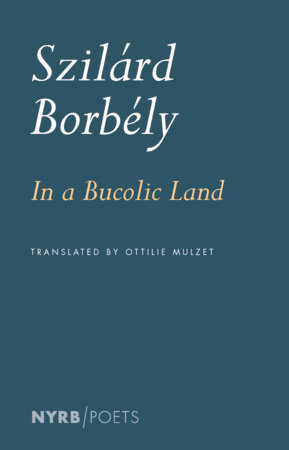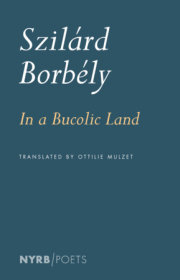"I am staggered by In a Bucolic Land. In long, wending lines, the poems present many of the same scenes and characters as Borbély’s novel, but differently paced and framed: the world of his childhood—a savagely poor rural village, still scarred by World War II, by Nazi and Soviet violence, by its own ingrown anti-Semitism." —Rosanna Warren, Ploughshares
"With these poems, Borbély holds our faces against the raw, fraying edges of humanity, in all its messiness, cruelty, and pain. These poems are, in many ways, 21st-century deconstructions of pastoral idyll. Borbély does not romanticize the village nor lament the supposed loss of traditional ways of life. . . . This work reveals a vast knowledge, not only of linguistic mediation from Hungarian to English, but of the history of Soviet collectivization, the specifics of a Hungarian agricultural tradition, and a deep understanding of the messy and complicated ways in which the distant and often abstract workings of geopolitics are felt by even the smallest, most seemingly insignificant communities." —Alina B. Williams, Hopscotch Translation
“[Borbély’s] poetry is epoch-making.” —Péter Nádas
“Szilárd Borbély was one of the best and most original poets and novelists of his generation—and Ottilie Mulzet is a wonderful translator of his work.” —George Szirtes
“[Borbély] is considered one of the most important figures in contemporary Hungarian literature, having had an immense impact on the transformation of Hungarian poetry in the last decade, strongly influencing the conceptualization of poetry’s social role and linguistic-thematic possibilities. . . . Borbély’s poetry, prose, and essays try to bring the readers closer to the lives of those who cannot speak of their trauma or suffering. They can be uneducated and poor villagers, survivors of the Holocaust, women grieving after a miscarriage, or victims of terrible aggression. Through Borbély’s texts we readers become increasingly less cruel-hearted.” —László Bedecs, Asymptote





